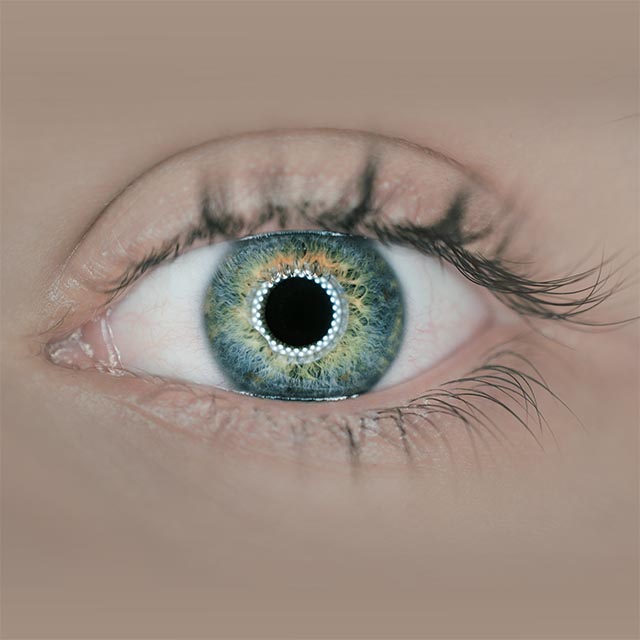EYE EXAM NEAR YOU IN NORTHEAST PHILADELPHIA
Routine eye exams not only help preserve clear vision but also detect potential health issues early on. Whether you’re young or old, a comprehensive eye exam offers insights into your eye health and overall well-being.
Discover the benefits of routine eye exams, what they entail, and why scheduling one is essential to protecting your vision and health.
Why Routine Eye Exams Are Important
Routine eye exams in Philadelphia are more than just updating your prescription; they’re a vital part of preventative health care. A comprehensive eye exam can uncover early signs of eye diseases and systemic health conditions that may go unnoticed without symptoms.
Many eye diseases, like glaucoma, diabetic retinopathy, and macular degeneration, don’t show early signs but can cause irreversible damage if untreated. Early detection through regular eye exams can lead to timely interventions and treatments that safeguard your vision.
Beyond disease detection, eye exams also evaluate how well your eyes work together, how they focus, and whether they’re correctly aligned. These factors are essential for clear vision and can help prevent issues like eye strain, headaches, and other vision-related discomforts.


What Eye Conditions and Diseases Can Eye Exams Detect?
Eye exams are powerful diagnostic tools that detect not only vision problems but also the health of your entire eye. Some conditions a comprehensive eye exam can uncover include:
Glaucoma: Often called the “silent thief of sight,” glaucoma can cause gradual vision loss without initial symptoms. Regular exams can detect it early before vision is significantly impacted.
Cataracts: Cataracts are common with aging and cause clouding of the lens, leading to blurred vision. An eye exam can identify cataracts early, allowing you to monitor their progression and consider treatment options.
Macular Degeneration: Age-related macular degeneration (AMD) is a leading cause of vision loss in adults over 50. Eye exams can detect early signs, helping slow the condition’s progression.
Diabetic Retinopathy: Diabetic patients are at risk of developing this condition, which affects the retina’s blood vessels. Early diagnosis through regular eye exams can prevent vision loss and manage symptoms effectively.
Refractive Errors: Common vision problems, such as nearsightedness, farsightedness, and astigmatism, are easily detected and corrected with glasses or contact lenses.
Early detection of these and other eye conditions can make a significant difference in treatment outcomes, helping you maintain better vision throughout your life.
How Often Do You Need an Eye Exam?
The frequency of eye exams depends on your age, overall health, and risk factors for certain conditions. As a general guideline:
Adults aged 20-39: Every two years is typically sufficient if there are no known eye health issues.
Adults aged 40-64: Every two years or annually, as this is when age-related eye changes may start appearing.
Adults 65 and older: Annually, due to the higher risk of age-related eye conditions such as glaucoma, cataracts, and macular degeneration.
If you have diabetes, a family history of eye diseases, or any pre-existing vision issues, your eye doctor may recommend more frequent visits. Regular eye exams provide you with peace of mind, knowing your eye health is carefully monitored.

Your Child's Eye Health and Learning
Vision plays a significant role in a child’s learning and development, impacting everything from reading and writing to playing sports. Many vision problems in children go unnoticed, as children often don’t realize they’re experiencing vision issues. Routine eye exams are critical in detecting problems early, so they don’t affect learning and development.
Starting Early with Pediatric Eye Exams
Children should have their first eye exam by age 3, or sooner if there are any visible concerns, like eye misalignment or excessive tearing. Regular eye exams throughout childhood are essential, as vision can change rapidly with growth and development. Pediatric eye exams check for issues like amblyopia (lazy eye), strabismus (eye misalignment), and refractive errors, ensuring your child can perform their best in and out of the classroom.
Contact Lens Exams: Finding the Perfect Fit
For those who choose contact lenses, a contact lens exam is an essential part of finding the perfect fit for comfort and clarity. Contact lenses are not one-size-fits-all; they require measurements of the curvature of your cornea and an evaluation of your eye health to determine the most suitable lenses. During a contact lens exam, your optometrist will discuss your lifestyle needs, whether you’re looking for daily wear, extended wear, or specialty lenses, such as those for astigmatism or multifocal lenses for presbyopia.
A proper contact lens fit improves comfort and vision clarity, reducing the risk of complications such as dry eyes, irritation, or infection. If you’re interested in trying contacts or already wear them and need an updated prescription, a contact lens exam is the ideal solution for a personalized fit.

What to Expect from a Comprehensive Eye Exam
A comprehensive eye exam includes several tests to evaluate both your vision and eye health. Here’s what you can typically expect:
- Visual Acuity Test: This measures the sharpness of your vision, often done with a standard eye chart.
- Refraction Test: Your optometrist uses a phoropter to determine the best corrective lenses for your prescription.
- Pupil Dilation: By dilating your pupils, your eye doctor gains a better view of the back of your eye, allowing for a thorough check of the retina and optic nerve.
- Eye Pressure Test: This measures intraocular pressure and helps screen for glaucoma.
- Slit Lamp Exam: This test uses a microscope with a light to examine the structures at the front of your eye, including the cornea, iris, and lens.
By conducting these tests, your eye doctor can detect vision issues, screen for potential eye diseases, and ensure your prescription remains up-to-date.

Schedule an Eye Exam in Northeast Philadelphia
Taking the time to schedule a comprehensive eye exam is one of the best investments you can make in your health. Whether you’re experiencing changes in your vision, want to ensure your eyes are healthy, or need an updated prescription, we’re here to help. Our experienced optometrists are committed to providing thorough, personalized eye exams tailored to your needs.
Book an appointment today, and take the first step toward protecting your eye health and enjoying clearer vision!
